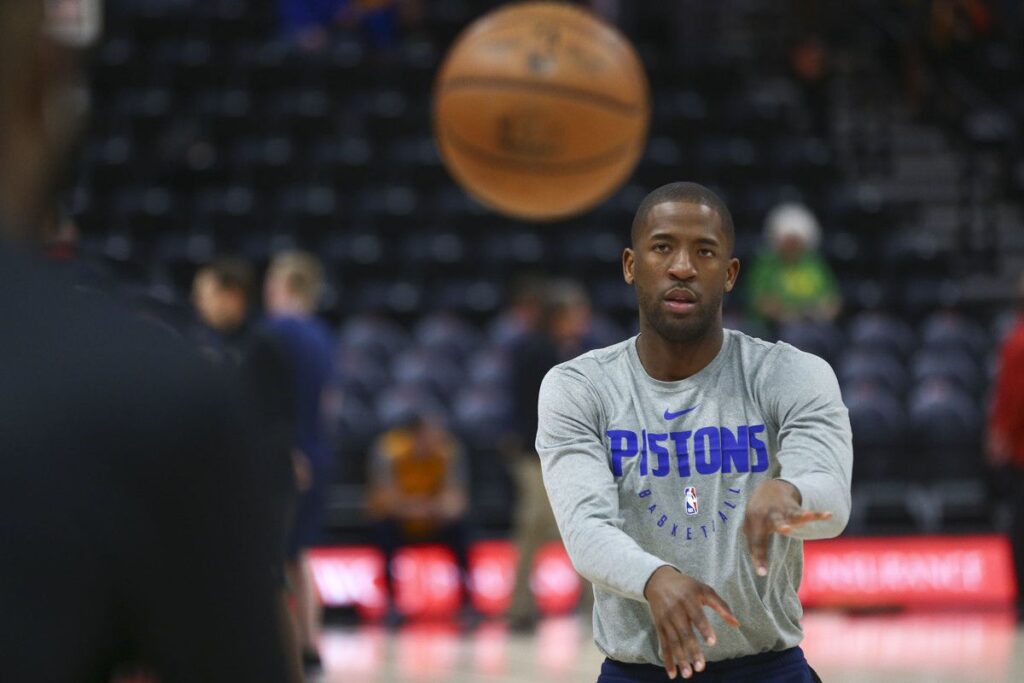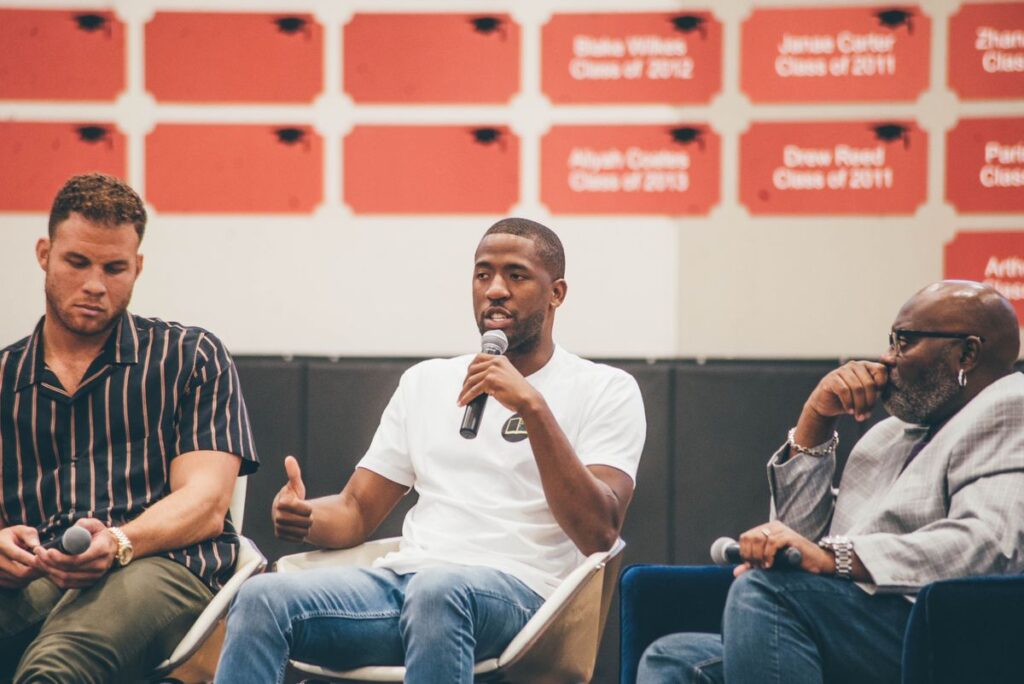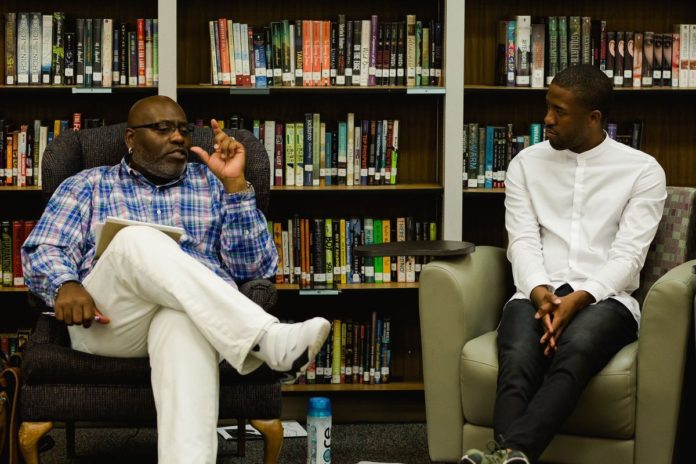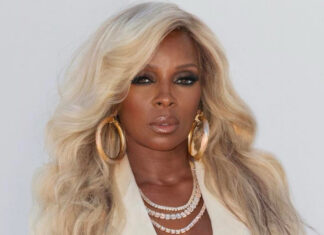Detroit Pistons assistant coach JD Dubois and the Piston’s psychotherapist Dr. Corey Yeager sat down with REVOLT TV to discuss ways to improve mental health in the Black community.
In 2016, DuBois founded Everyone Has A Story. Everyone Has A Story is a community-based organization that promotes “compassion for others,” according to REVOLT.
“Everyone Has A Story is a community-based, non-profit organization,” DuBois tells REVOLT TV. “What I mean by community-based is, when we do work…we are utilizing individuals that are already in those communities doing work. We make sure that we are staying in touch with those that are on the ground in those communities to make sure that we are providing them with what they need.”
DuBois and Dr. Yeager support mental health in Black and Brown communities through initiatives such as Sankofa and 31 Shades of green.
“31 Shades of Green came about really just through conversation,” DuBois explains. “Our organization is always sharing stories and always creating safe spaces to talk about mental wellness, but for Mental Health Awareness Month specifically, we talked about the wide range of mental wellness. There’s a huge spectrum of mental wellness and the color for Mental Health Awareness month is green. So, just with the understanding that 31 Shades of Green — there’s 31 days in the month — and there’s going to be a variety of different stories that we will share throughout the month.
“I think the concept of 31 Shades of Green is deeply important, adds Dr. Yeager. “To have those voices be vulnerable is extremely important, especially to Black and brown youth.“
DuBois explains how he overcame his own battles with mental health.
“It all really stemmed from me being an athlete and trying to get an edge as a player,” explains DuBois. “So, figuring out, how can I be more mindful? How can I be in tune with my inner voice and inner dialogue to help performance?”

“Then, as I started to engage in how this can affect my performance, I started to understand that there’s some deeper traumas that may bleed into my personal life as well. As I got older and got to college,” DuBois explains. “I was talking to different people at my university about how many different friends had passed away and how many different people I had lost, and I realized that it wasn’t normal.”
“But, in my area where I grew up, it was normal,” he adds. “Thirteen, 14, 15, I had two, three, four friends that had been murdered — that was normal. But you go and expand and meet new people, and realize that that isn’t normal and there could be some impact on how you behave, how you react. And then I just started to dive a little deeper, and it was a long journey — a forever healing process to try to find ways to channel support and utilize it, whether it be in my personal or work life.”
Dr. Yeager explains how sometimes past traumas can become cultural norms.
“If you were born into this country, Black or brown, you suffer from trauma,” he begins. “It’s undeniable and intergenerational meaning that it goes all the way back to slavery. That transmission of that trauma has been handed off, generation to generation. At some point, we begin to call some of these things cultural.”

“For instance, that we whoop our kids in the Black community,” Dr. Yeader continues. “But, if we really thought about it deeply, were we whooping our children when we were kings and queens, and astrologers and doctors in Africa? Or did we learn that behavior once we came over and were forced into slavery? We started to interpret that as what discipline looks like and we started to implement that on our children. It’s really just the holding on to the trauma we experience in slavery.”
Due to the pandemic, mental health has become a focal point in today’s society. DuBois urges that you have a heart-to-heart with yourself before entering the movement. Identify the moments, traumas that changed and affect you in various ways.
“Before we can join a broader movement and be part of something that changes the stigma that’s associated with mental health, especially in the Black and brown communities, we have to do our own individualized work,” he states. “That work of looking in the mirror and having that honest conversation with that man or woman in the mirror. And once that work begins, we can join with others to try to change some of those deeper roots of trauma.”
Click here to learn more about Everyone Has A Story, ways to help, participate or donate to the community-based program.









